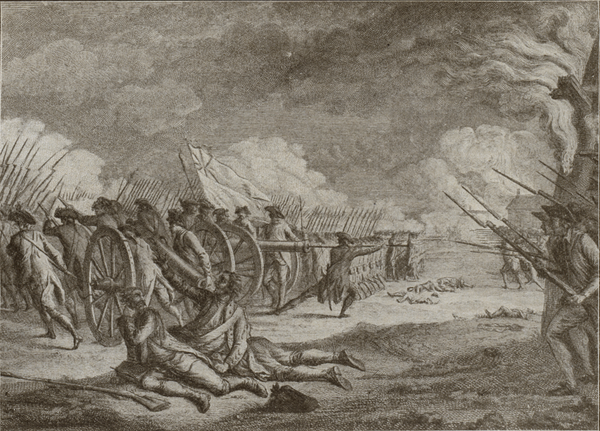Enoch Poor Dies Under Suspicious Circumstances
Enoch Poor was a Brigadier General in the American Revolutionary War.
Although Poor is not as famous as many other Generals, he played a necessary role in the Battle of Saratoga which was a turning point in the Revolution.
Enoch Poor
As a young man, Enoch Poor began service in the Massachusetts militia. In this role, he participated in the French and Indian War. Enoch was involved in both the invasion of Canada and the Expulsion of the Acadians.
After the war, Poor married and settle in Exeter, New Hampshire.
When the Stamp Act was passed, Enoch became one of the most vocal opponents of British taxation. He was one of the earliest rebels in his colony to promote independence.
Revolutionary
After the Battle of Lexington and Concord, Poor was named as one of just three Colonels who were responsible for leading regiments of the New Hampshire Militia.
Poor led his men during the Battle of Bunker hill. His performance was impressive and the regiment was absorbed into the Continental Army.
Enoch’s first mission as a Continental was to join Major General Richard Montgomery in the Invasion of Canada. This invasion was a failure and Poor brought his men to Morristown where they camped for the winter with George Washington and the Main Army.
Brigadier General
Poor was named Brigadier General in early 1777 and that year participated in the Battle of Saratoga.
On the first day of fighting, Poor’s regiment helped Daniel Morgan keep the British from breaking through the American force from the left.
The following day, Enoch was positioned in the middle of the Redcoats’ attack. He had his soldiers wait until the British charged with their bayonets. When the time came, Poor’s men decimated the first line of attacking soldiers. This was a key moment in one of the most important battles of the Revolutionary War.
After spending the winter at Valley Forge and playing a significant role at the Battle of Monmouth, Poor joined the Sullivan Expedition. This Expedition stormed through Upstate New York attacking the Iroquois Nations. They burned the villages and crops of these Native Americans, practically halting their participation in the war.
Mysterious Death
Poor returned to the Main Army and was placed under the command of the Marque de Lafayette.
Then, suddenly, he died.
The cause of Enoch’s death, at just 44 years old, is the subject of some controversy. The official report is that he developed typhoid and passed away just two days later.
Contemporary reports, however, suggest a different story.
Allegedly, one of Poor’s subordinates was unhappy with his decision to make his men continue marching when they were clearly tired. The argument escalated, a duel ensued, and Enoch died.
The historical discussion is still divided. Some historians recommend believing the coroner’s report.
Others, however, believe George Washington organized a cover up. As dueling was illegal in the Continental Army, it would look band on the Commander-in-Chief if his men were dueling.
And worse…a General losing to his Lieutenant. Unacceptable.
As I said earlier, the jury is still out. We may never know, but we can guess. What do you think? Let me know in the comments.
If you’d like to learn more about Revolutionary Generals from New Hampshire, please investigate our articles about William Whipple and John Langdon.
If you’d like to learn more about Enoch Poor, pick up a copy of ‘New Hampshire and the Revolutionary War.’ This military history discusses all the New Hampshire Generals and their roles in the hostilities. Links on this site go to our affiliate Amazon and do not increase your price.






